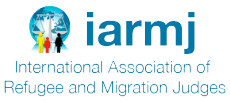The court noted the undeniable infringement of the applicant's section 12 right to freedom and security of person under the Constitution, establishing jurisdiction. Recognizing the urgency, given the applicant's ongoing detention and imminent deportation threat to a country with potential harm, the court granted leave for a direct appeal in the interest of justice.
Addressing whether the applicant could be released from immigration detention upon expressing asylum intention, the court referred to Regulations, determining that the declaration must occur at a port of entry. Sections 4(1)(h) and (i) and 21(1B) of the Refugees Amendment Act, along with regulations 7 and 8(3), provided illegal foreigners an opportunity to declare asylum intention in an interview with an immigration officer if they did not express it at a port of entry.
Concerning the time period for illegal foreigners to apply for an asylum seeker permit, the court followed Ruta and Abore cases, emphasizing that once the intention is expressed, applicants should be given an opportunity. Any delay in expressing intention does not disqualify asylum applications, and the principle of non-refoulement protects applicants from deportation until their refugee status is conclusively determined.
Asylum seeker, illegal foreigner, asylum, asylum transit visa, asylum permit, non-refoulement, detention, administrative detention, imprisonment
This was an urgent application for leave to appeal directly to the Constitutional Court. The applicant sought to challenge the order of the High Court which struck the matter from the roll for lack of urgency. The applicant had been arrested in Pretoria for entering and residing in South Africa unlawfully, in contravention of the Immigration Act, under which he was an ‘illegal foreigner. The applicant entered South Africa from Zimbabwe for fear of persecution for his political and religious beliefs in Ethiopia in June 2021. The applicant averred that he sought asylum but to no avail, due to Covid-19 restrictions. The applicant instituted the urgent application to obtain an interdict against the respondents from deporting him until his status as a refugee could be lawfully and finally established under the Refugees Act and Regulations.
Leave for direct appeal was granted and the appeal against the Respondents succeeded.
The respondents were directed to take all reasonable steps to facilitate the applicant’s asylum application.
The court held that the applicant may not be deported until he has had an opportunity to show good cause for having entered and stayed in South Africa, and until his application for asylum has been determined.
